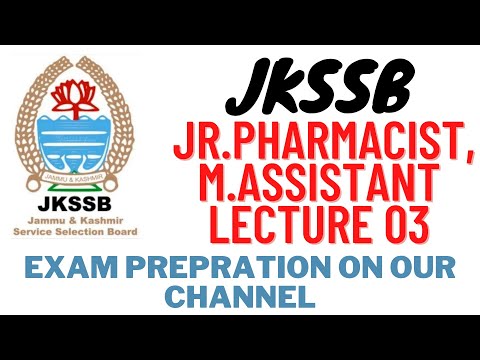What to Expect as a Medical Assistant in the ER
Contents [show]
As a medical assistant you will be expected to perform a variety of duties in the emergency room. Learn what to expect and how to handle the pressure.
Checkout this video:
Introduction
As a medical assistant you will be responsible for a wide variety of tasks. You may be asked to perform administrative duties, such as scheduling appointments and maintaining medical records You may also be responsible for basic clinical tasks, such as taking patient medical histories and measuring vital signs. In some cases, you may even assist with minor surgery or other procedures.
No matter what your specific duties are, you can expect to work long hours in a fast-paced environment. Emergency room Medical assistants must be able to stay calm under pressure and handle a wide variety of tasks simultaneously. If you are thinking about pursuing a career as an emergency room medical assistant here are a few things you should know.
The role of a medical assistant in the ER
Medical Assistants play a vital role in the smooth functioning of an ER. As the first line of patient care, they are responsible for greeting patients, taking vital signs, and collecting patient history. In addition, they may also be responsible for performing basic lab tests, assisting with x-rays and other procedures, and providing patients with information about their condition and treatment options. Medical assistants must be able to effectively communicate with both patients and medical staff in order to provide the best possible care.
The duties of a medical assistant in the ER
Medical assistants play a vital role in the efficient running of any hospital department, but nowhere is their job more crucial than in the Emergency Room. In this fast-paced environment, medical assistants are responsible for performing a wide variety of tasks, from greeting patients and taking their vital signs to preparing them for treatment and assisting the doctor or nurse with procedures.
No two days are the same in the ER, and medical assistants must be able to think on their feet and remain calm under pressure. They need to be able to work quickly and efficiently, as lives may literally depend on it.
The hours of a medical assistant in the ER
Most medical assistants work in physicians’ offices, clinics, or other outpatient facilities. A smaller number work in hospitals, usually in the emergency room. The hours of medical assistants vary depending on their workplace. Those who work in physicians’ offices and other outpatient facilities usually have daytime hours, Monday through Friday. Some may have evening or Saturday hours to accommodate patients who work during the day. Medical assistants who work in hospitals may have evening, night, or weekend shifts. They also may be on call, which means they must be available to come to work at short notice if needed.
The pay of a medical assistant in the ER
Medical assistants in the ER can expect to earn a competitive salary. The median annual wage for medical assistants was $34,800 in May 2018, according to the U.S. Bureau of Labor Statistics. The top 10 percent earned more than $49,560, and the bottom 10 percent earned less than $24,670.
The benefits of being a medical assistant in the ER
The benefits of being a medical assistant in the ER are many. You will have the opportunity to work with a variety of patients, from those who are acutely ill to those who are critically injured. You will also be able to work with a team of medical professionals, all of whom are dedicated to providing the best possible care for their patients.
The drawbacks of being a medical assistant in the ER
working in the ER can be extremely stressful and may not be the right fit for everyone. Here are a few of the potential drawbacks of being a medical assistant in an emergency room:
-You will see a lot of suffering. If you are not prepared to see people in pain, doctors and nurses yelling, and blood and other bodily fluids, then working in the ER is probably not for you.
-The hours can be long and irregular. Most ERs are open 24 hours a day, which means that medical assistants may have to work nights, weekends, or holidays. Additionally, because ERs are often understaffed, medical assistants may have to work overtime on a regular basis.
-You will be exposed to contagious diseases. Since the ER is where people with all kinds of illnesses go for treatment, medical assistants in the ER are at a higher risk of exposure to diseases. It is important to take precautions to avoid getting sick yourself.
The training of a medical assistant in the ER
Medical assistants in the ER have a very different job than those in other parts of the hospital. They are responsible for handling everything from patient intake and vital signs to suturing and assisting with minor surgeries. Because of the high-pressure nature of the job, medical assistants in the ER must be highly trained and able to think on their feet.
The training of a medical assistant in the ER typically starts with a few months of on-the-job training. During this time, medical assistants will shadow more experienced colleagues and learn the ropes of the job. After this initial period, medical assistants will likely be required to take a certification exam. Once they have passed this exam, they will be considered fully certified medical assistants and will be able to work independently.
The future of medical assistants in the ER
Medical assistants play a vital role in the patient care process in the emergency room (ER). They are responsible for a variety of clinical and administrative tasks, such as taking medical histories, recording vital signs, and preparing patients for examination. With the increasing demand for ER services, medical assistants will continue to be in high demand in the future.
As a medical assistant in the ER, you can expect to work with a team of medical professionals to provide quality care to patients. You will need to be able to work quickly and efficiently under pressure. Good communication and organizational skills are essential.
Conclusion
In conclusion, working as a medical assistant in the ER can be a very rewarding and challenging experience. You will be responsible for a wide variety of tasks, from handling patient paperwork to helping with procedures. You will need to be able to think on your feet and remain calm under pressure. If you are up for the challenge, then working in the ER can be a great way to start your career in healthcare.







